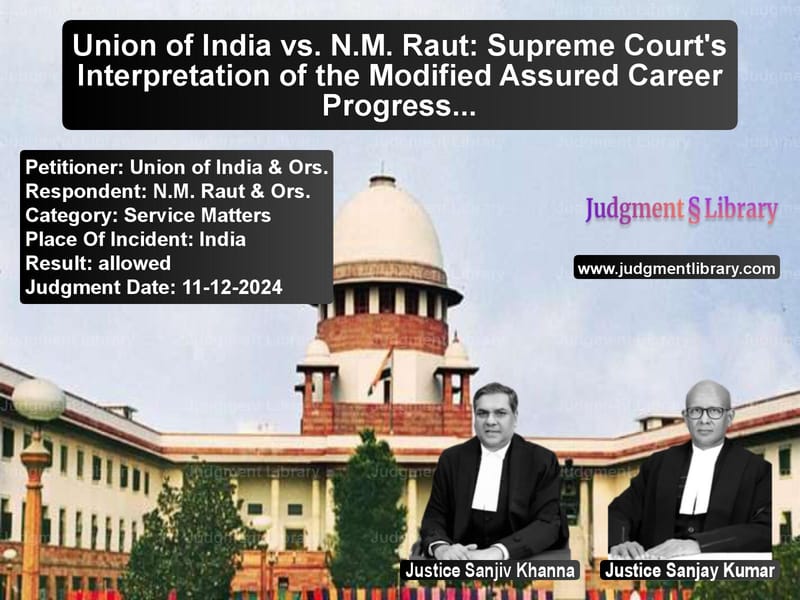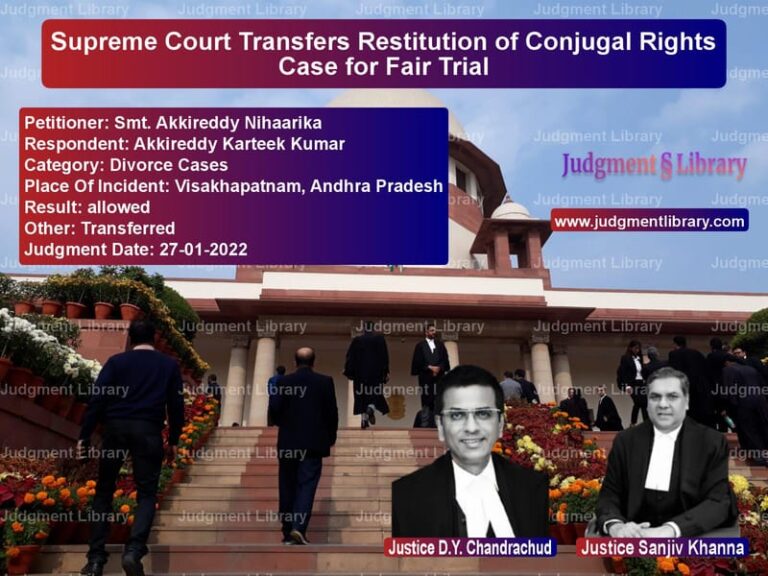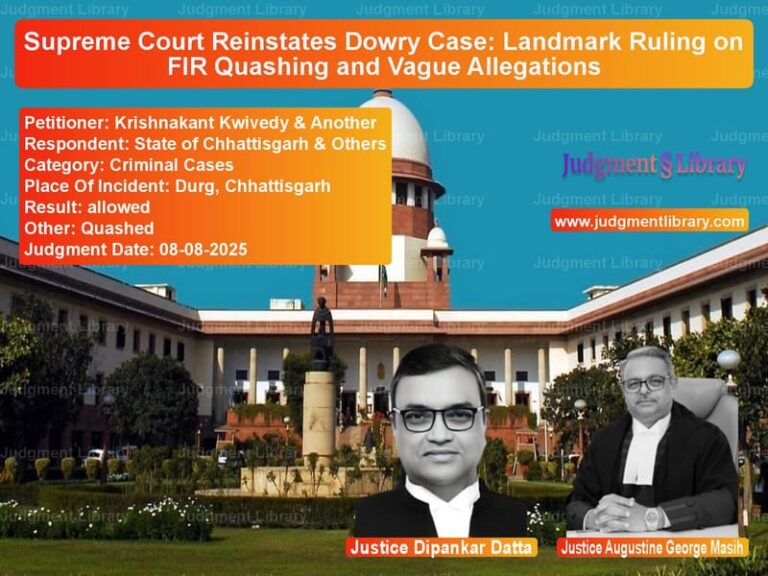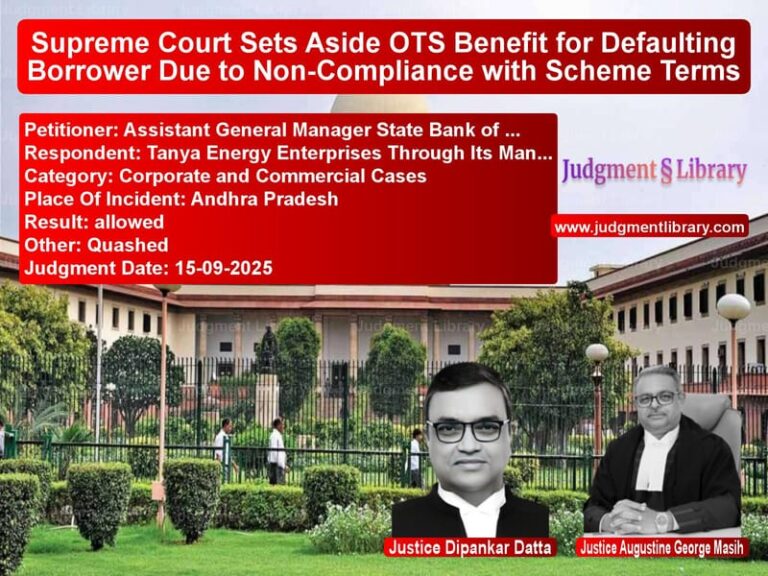Union of India vs. N.M. Raut: Supreme Court’s Interpretation of the Modified Assured Career Progression Scheme
The case of Union of India & Ors. vs. N.M. Raut & Ors. deals with the interpretation and implementation of the Modified Assured Career Progression Scheme (MACPS), 2008, which has been a subject of legal dispute among government employees. The core issue in this case revolved around whether financial upgradations under MACPS should be granted based on the next promotional post in service or the next higher grade pay.
The judgment provides crucial insights into the government’s stance on career progression and financial benefits for employees serving in various government departments.
Background of the Case
The MACPS was introduced with effect from September 1, 2008, to replace the earlier Assured Career Progression Scheme (ACPS). The ACPS provided financial upgradations after 12 and 24 years of service, whereas the MACPS introduced three financial upgradations at intervals of 10, 20, and 30 years for employees who had not been promoted within these time frames.
However, disputes arose when employees claimed that they were entitled to financial upgradations based on the pay scale of the next promotional post, while the government contended that upgradations under MACPS were only to the next higher grade pay in the hierarchy.
Punjab and Haryana High Court’s Decision
The dispute reached multiple High Courts, including the Punjab and Haryana High Court, which ruled in favor of the employees. The High Court held that financial upgradations under MACPS should be granted in the next promotional post’s pay scale rather than just the next grade pay.
However, the Union of India challenged this decision, leading to the present appeals before the Supreme Court.
Arguments by the Petitioners (Union of India)
The Union of India argued that:
- The MACPS was designed to provide financial relief to employees stuck in the same grade for long periods without promotion.
- Financial upgradations under MACPS were not equivalent to promotions and should not be linked to promotional posts but rather to the next immediate grade pay.
- The High Court erred in interpreting the scheme as being linked to promotions rather than grade pay hierarchies.
Arguments by the Respondents (N.M. Raut & Others)
The respondents, mainly government employees, contended that:
- MACPS should be interpreted in the context of the earlier ACPS, which granted upgradations based on the next promotional post.
- Placing employees in a lower grade pay structure rather than the next promotional post resulted in financial loss.
- The government’s interpretation unfairly disadvantaged employees who had served for decades without promotion.
Supreme Court’s Analysis
The Supreme Court examined key precedents, including:
- Union of India v. M.V. Mohanan Nair – Clarifying that MACPS differs from ACPS and is based on grade pay progression.
- Ex. HC/GD Virender Singh – Holding that MACPS does not apply retrospectively from January 1, 2006, but from September 1, 2008.
- Balbir Singh Turn case – Establishing that the MACPS scheme supersedes earlier pay revision benefits.
The Court ruled:
“The MACPS envisages merely placement in the immediate next higher grade pay in the hierarchy of the recommended revised pay bands and grade pay as given in the CCS (Revised Pay) Rules, 2008.”
The judgment emphasized that financial upgradations should be granted strictly in line with the grade pay hierarchy and not the promotional post.
Final Judgment
The Supreme Court allowed the appeals, overturning the High Court’s decision and ruling in favor of the government. The Court held that:
- Financial upgradations under MACPS would be granted based on grade pay progression rather than the next promotional post.
- Any contrary rulings by High Courts were set aside.
- The Union of India was not required to make any retrospective payments based on prior incorrect interpretations of MACPS.
- Retirees and those retiring within a year would not be subjected to recoveries of excess payments.
Implications of the Judgment
This ruling clarifies the MACPS framework and sets a uniform precedent for future disputes. Key takeaways include:
- MACPS provides financial relief but does not grant actual promotions.
- Pay progression is based on fixed grade pay increments, not promotional hierarchy.
- Government employees must be aware that MACPS does not override regular promotional policies.
The Supreme Court’s verdict resolves long-standing disputes and ensures that MACPS is implemented uniformly across all departments.
Petitioner Name: Union of India & Ors..Respondent Name: N.M. Raut & Ors..Judgment By: Justice Sanjiv Khanna, Justice Sanjay Kumar.Place Of Incident: India.Judgment Date: 11-12-2024.
Don’t miss out on the full details! Download the complete judgment in PDF format below and gain valuable insights instantly!
Download Judgment: union-of-india-&-ors-vs-n.m.-raut-&-ors.-supreme-court-of-india-judgment-dated-11-12-2024.pdf
Directly Download Judgment: Directly download this Judgment
See all petitions in Promotion Cases
See all petitions in Employment Disputes
See all petitions in Pension and Gratuity
See all petitions in Judgment by Sanjiv Khanna
See all petitions in Judgment by Sanjay Kumar
See all petitions in allowed
See all petitions in supreme court of India judgments December 2024
See all petitions in 2024 judgments
See all posts in Service Matters Category
See all allowed petitions in Service Matters Category
See all Dismissed petitions in Service Matters Category
See all partially allowed petitions in Service Matters Category







